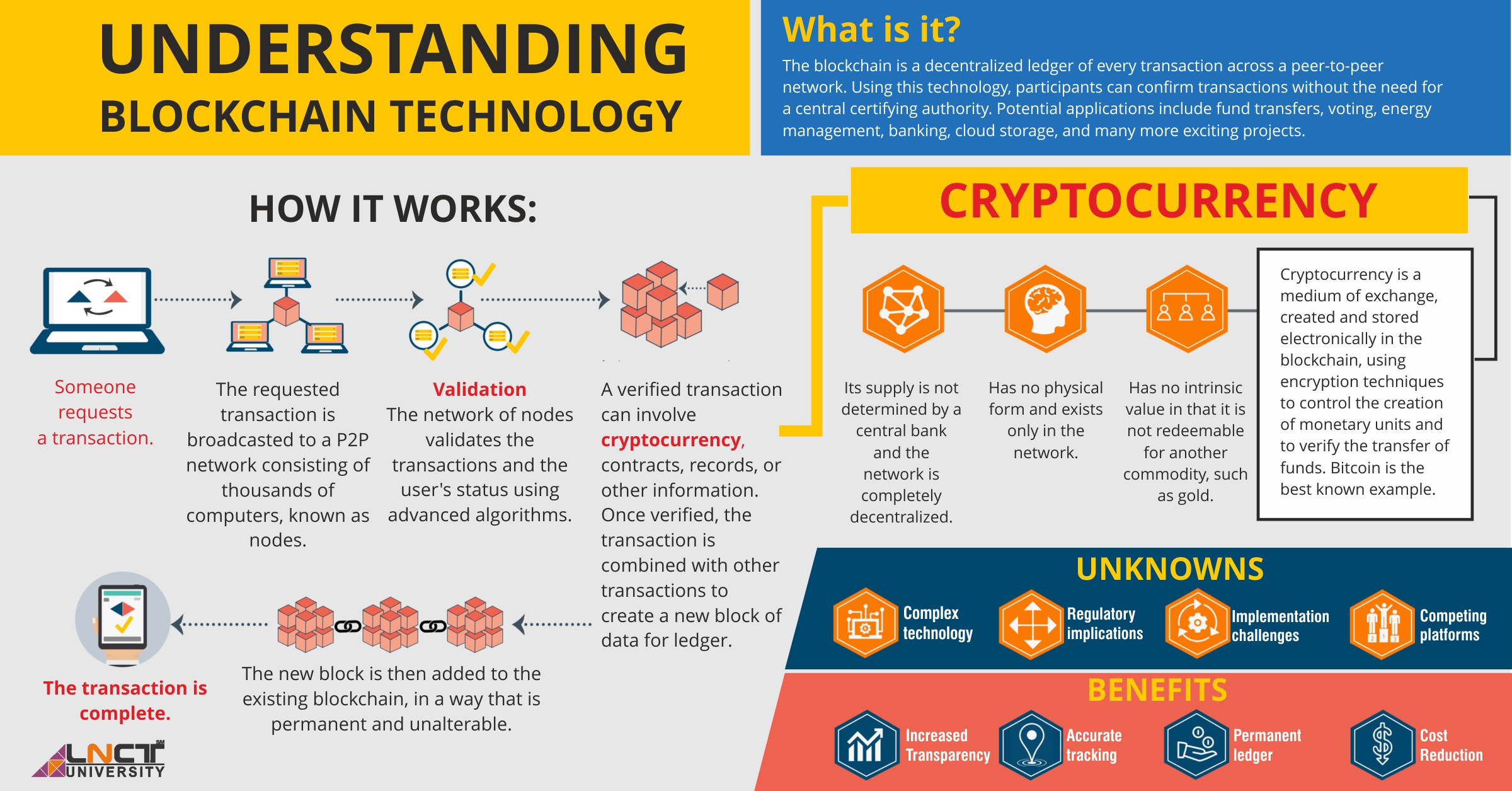New Technologies and Innovations in Blockchain: Overview of new projects and technical solutions

- Introduction to Blockchain Technology
- Exploring the Latest Innovations in Blockchain
- Revolutionizing Industries with Blockchain Solutions
- Emerging Trends in Blockchain Development
- Case Studies of Successful Blockchain Projects
- The Future of Blockchain Technology
Introduction to Blockchain Technology
Blockchain technology is a revolutionary innovation that has the potential to transform various industries. It is a decentralized and distributed ledger system that securely records transactions across a network of computers. The blockchain is made up of blocks of data that are linked together using cryptography, creating a secure and transparent record of transactions.
One of the key features of blockchain technology is its immutability, meaning that once a transaction is recorded on the blockchain, it cannot be altered or deleted. This makes blockchain ideal for applications where data integrity and security are paramount, such as financial transactions, supply chain management, and healthcare records.
Blockchain technology has gained popularity in recent years due to its ability to provide transparency, security, and efficiency in a wide range of applications. From cryptocurrencies like Bitcoin to smart contracts and decentralized applications, blockchain technology is being used to revolutionize how we transact and interact online.
As new projects and technical solutions continue to emerge in the blockchain space, it is important to stay informed about the latest developments and innovations. By understanding the potential of blockchain technology and how it can be applied to various industries, we can harness its power to create a more secure and efficient digital future.
Exploring the Latest Innovations in Blockchain
Exploring the latest advancements in blockchain technology reveals a plethora of innovative projects and technical solutions that are shaping the future of this industry. These new developments are revolutionizing the way we think about decentralized systems and digital transactions.
One of the most exciting innovations in blockchain is the rise of decentralized finance (DeFi) platforms. These platforms leverage blockchain technology to create a new financial ecosystem that is open, transparent, and accessible to anyone with an internet connection. DeFi projects are enabling users to borrow, lend, and trade assets without the need for traditional financial intermediaries.
Another groundbreaking development in blockchain technology is the emergence of non-fungible tokens (NFTs). NFTs are unique digital assets that are stored on a blockchain and represent ownership of a specific item or piece of content. These tokens have gained popularity in the art world, with artists and creators using them to sell digital artwork and collectibles.
Blockchain technology is also being used to improve supply chain management and logistics. By utilizing blockchain’s immutable ledger, companies can track the movement of goods from the point of origin to the final destination with increased transparency and security. This has the potential to revolutionize industries such as food and pharmaceuticals, where traceability and authenticity are crucial.
Overall, the latest innovations in blockchain are pushing the boundaries of what is possible in the digital world. From DeFi platforms to NFTs and supply chain solutions, blockchain technology is proving to be a versatile and transformative tool that has the potential to disrupt multiple industries.
Revolutionizing Industries with Blockchain Solutions
Blockchain technology is revolutionizing various industries by providing innovative solutions to long-standing challenges. Companies across sectors are leveraging blockchain to streamline processes, enhance security, and improve transparency.
One of the key areas where blockchain is making a significant impact is supply chain management. By utilizing blockchain solutions, companies can track products from their origin to the end consumer, ensuring authenticity and reducing the risk of counterfeit goods entering the market. This level of transparency not only benefits businesses but also builds trust with consumers.
Another industry being transformed by blockchain is finance. With the rise of cryptocurrencies and decentralized finance (DeFi) platforms, traditional banking systems are facing disruption. Blockchain enables secure and efficient transactions, eliminates intermediaries, and provides greater financial inclusion for individuals who are underserved by traditional banking institutions.
Healthcare is yet another sector that stands to benefit from blockchain technology. By securely storing patient data on a decentralized network, healthcare providers can ensure the integrity and privacy of sensitive information. Additionally, blockchain can facilitate the sharing of medical records among different healthcare providers, leading to more coordinated and effective patient care.
In conclusion, blockchain solutions are driving innovation and efficiency across industries, paving the way for a more secure and transparent future. As companies continue to explore the potential of blockchain technology, we can expect to see even more groundbreaking applications that will reshape the way we do business.
Emerging Trends in Blockchain Development
One of the most exciting aspects of the blockchain technology landscape is the constant evolution and emergence of new trends in development. These trends are shaping the future of blockchain projects and technical solutions, driving innovation and pushing the boundaries of what is possible in this space.
One emerging trend in blockchain development is the rise of decentralized finance (DeFi) applications. DeFi projects are leveraging blockchain technology to create new financial systems that are open, transparent, and accessible to anyone with an internet connection. These projects are revolutionizing traditional finance by enabling peer-to-peer transactions, automated lending, and decentralized exchanges.
Another trend gaining momentum in blockchain development is the integration of artificial intelligence (AI) and machine learning (ML) technologies. By combining blockchain with AI/ML, developers are able to create smart contracts that can autonomously execute tasks based on predefined conditions. This integration opens up a world of possibilities for creating self-executing agreements, predictive analytics, and automated decision-making processes.
Interoperability is also a key trend in blockchain development, as projects seek to create seamless connections between different blockchains and networks. This trend is driven by the need for increased scalability, efficiency, and collaboration in the blockchain ecosystem. By enabling interoperability, developers can unlock new use cases, improve user experience, and foster innovation across multiple platforms.
Case Studies of Successful Blockchain Projects
There have been several successful blockchain projects that have demonstrated the potential of this technology to revolutionize various industries. These case studies showcase the real-world applications of blockchain and how they have brought about positive changes.
- One notable example is the project by a leading supply chain management company that implemented blockchain to track the provenance of goods. This initiative helped increase transparency and trust among stakeholders, leading to a more efficient and secure supply chain.
- Another successful blockchain project involved a healthcare organization that used the technology to securely store and share patient data. By leveraging blockchain’s immutability and encryption features, the organization was able to ensure the privacy and integrity of sensitive information.
- Furthermore, a financial institution adopted blockchain to streamline its payment processes and reduce transaction costs. The decentralized nature of blockchain eliminated the need for intermediaries, resulting in faster and more cost-effective transactions for the institution and its customers.
These case studies highlight the diverse applications of blockchain technology and its potential to drive innovation across various sectors. By leveraging the unique features of blockchain, organizations can enhance security, transparency, and efficiency in their operations, ultimately leading to improved outcomes for both businesses and consumers.
The Future of Blockchain Technology
The future of blockchain technology holds great promise for revolutionizing various industries and sectors. As new projects and technical solutions continue to emerge, the potential applications of blockchain are expanding rapidly. One of the key areas where blockchain technology is expected to make a significant impact is in the realm of supply chain management.
By leveraging blockchain’s immutable and transparent nature, companies can track and trace products throughout the entire supply chain, ensuring authenticity and reducing the risk of fraud. This has the potential to revolutionize industries such as food and pharmaceuticals, where traceability and transparency are of utmost importance.
Another exciting development in the future of blockchain technology is the rise of decentralized finance (DeFi). DeFi platforms are leveraging blockchain technology to create a more inclusive and accessible financial system, allowing individuals to access a wide range of financial services without the need for traditional intermediaries.
Furthermore, blockchain technology is also being explored for its potential to revolutionize voting systems. By utilizing blockchain’s security and transparency features, governments and organizations can create more secure and tamper-proof voting systems, ensuring the integrity of elections and decision-making processes.
In conclusion, the future of blockchain technology is bright, with new projects and technical solutions paving the way for innovative applications across various industries. As blockchain continues to evolve and mature, we can expect to see even more groundbreaking developments that have the potential to transform the way we live, work, and interact with one another.




